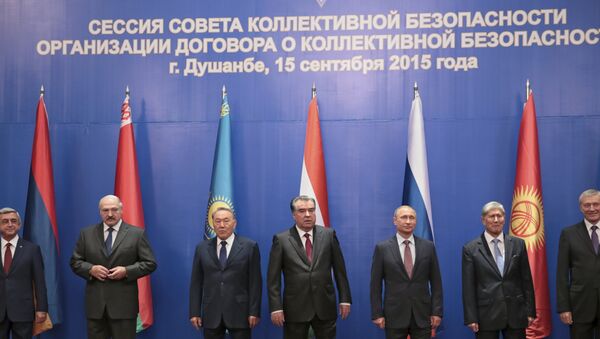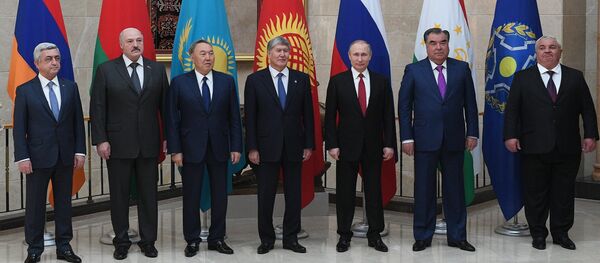"With the secretaries of the security councils, we discussed in detail the issues related to the need to step up work to ensure information security of our states and increase the effectiveness of our special operation Proxy, aimed at countering crime on the Internet," Khachaturov told reporters after the meeting, adding that "only in 2016, the operation revealed more than 11,000 information resources, potentially threatening the security of our states."
Khachaturov pointed to a "constantly increasing destructive information impact on the CSTO states," and "active use of the Internet by terrorists of all stripes." He stressed that a number of specific proposals will be reported to the leaders of the CSTO member-states.
The secretary also informed attendees that the meeting identified tasks to improve the managing system for the formation of CSTO prompt response forces, under the conduction of special operations. The security councils' secretaries and the defense ministers approved a plan for collective actions in 2018.
"We will conduct five drills, trainings, as well as a number of conferences and round tables," he said.
The CSTO was established in October 2002 as a regional intergovernmental alliance by Russia, Armenia, Kazakhstan, Kyrgyzstan, Tajikistan, and Belarus. The CSTO Charter stipulates the pledge of all member-states to abstain from the use of force and join other military alliances. Aggression against one signatory state equals aggression against all.



